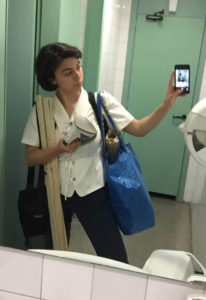
Thesis

Thesis
Data visualization
- MADD 20
Intelligent Virtual Assistants (IVA) are currently fed with neurotypical databases. The data they use and the behaviors they copy exclude collectives with neurodevelopmental disorders, such as dyslexia, dyspraxia, or autism. These collectives not only are capable to carry on daily-life tasks, but also contribute to having diversity and uniqueness in our societies.
Thesis is an IVA with Asperger Syndrome that, by illustrating a specific problem that affects a specific group of people (the lack of data on Asperger Syndrome in women) opens up the debate about a highly relevant issue that affects us all (AI and its behaviors) as well as the responsibility that designing these tools ultimately embeds.
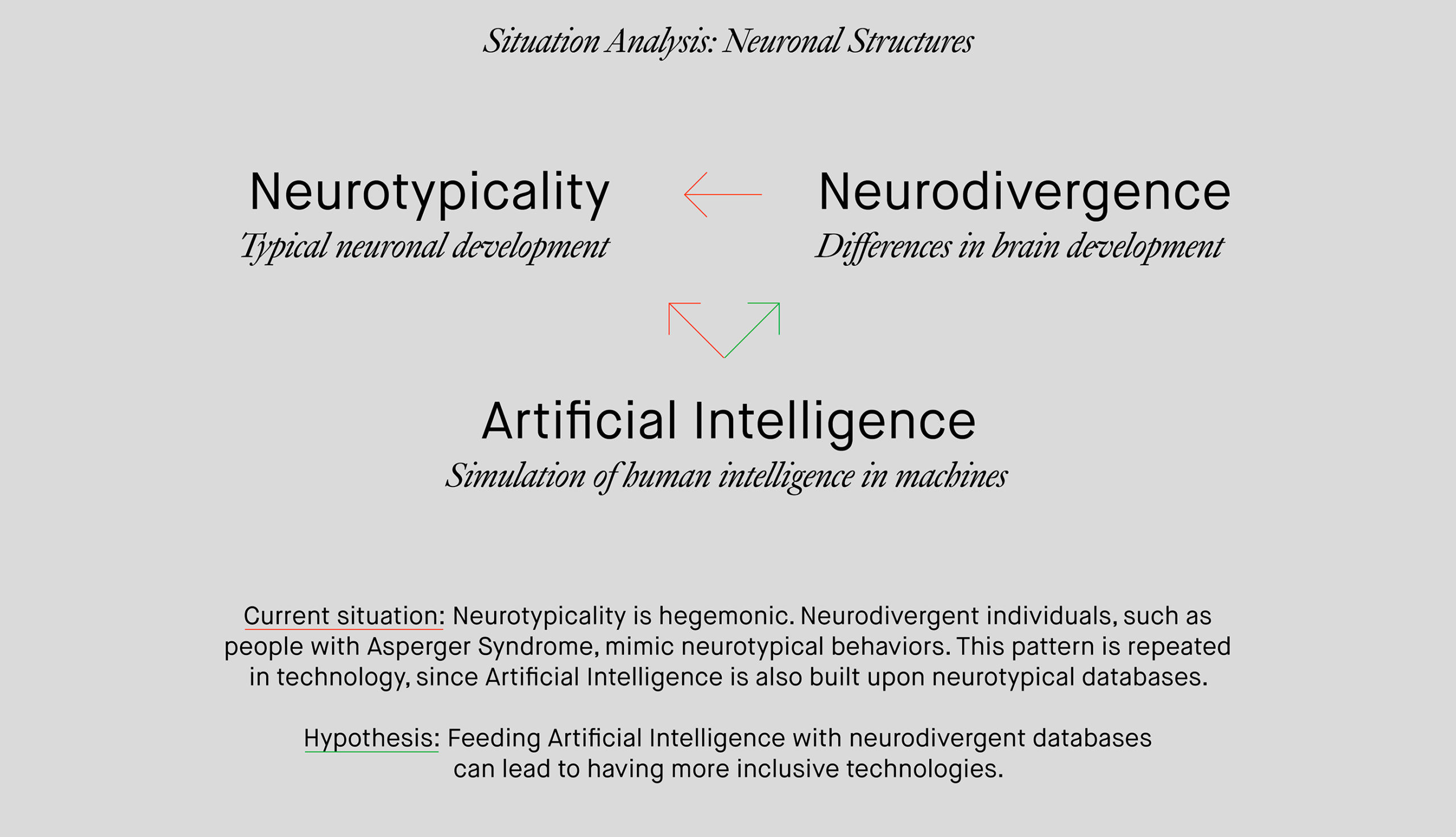
The personalities of Intelligent Virtual Assistants (IVA) are currently evolving in two main directions: towards safety and towards customization.
The former allows enterprises to create functional robots that fulfill people’s needs without creating friction in their conversations.
The latter embeds the danger of increasing intolerance towards personality diversity.
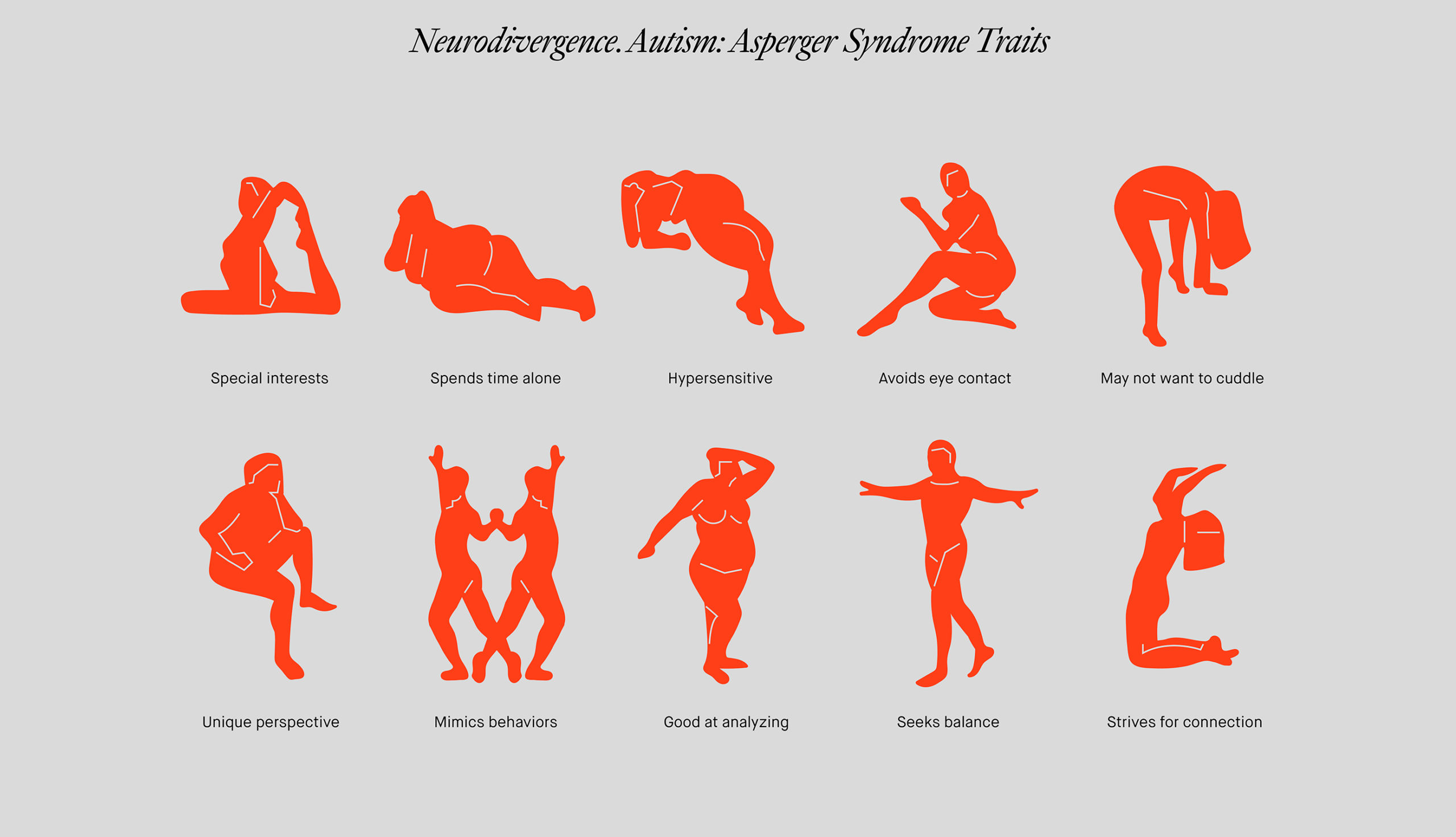
IVAs are currently fed with neurotypical databases. The data they use and the behaviors they copy exclude collectives with neurodevelopmental disorders, such as dyslexia, dyspraxia, or autism.
These collectives not only are capable to carry on daily-life tasks, but also contribute to having diversity and uniqueness in our societies.
How would it be if we could feed Artificial Intelligence (AI) with databases that weren’t based on neuronally typical behaviors? Can neurodivergent data lead to having more inclusive technologies?
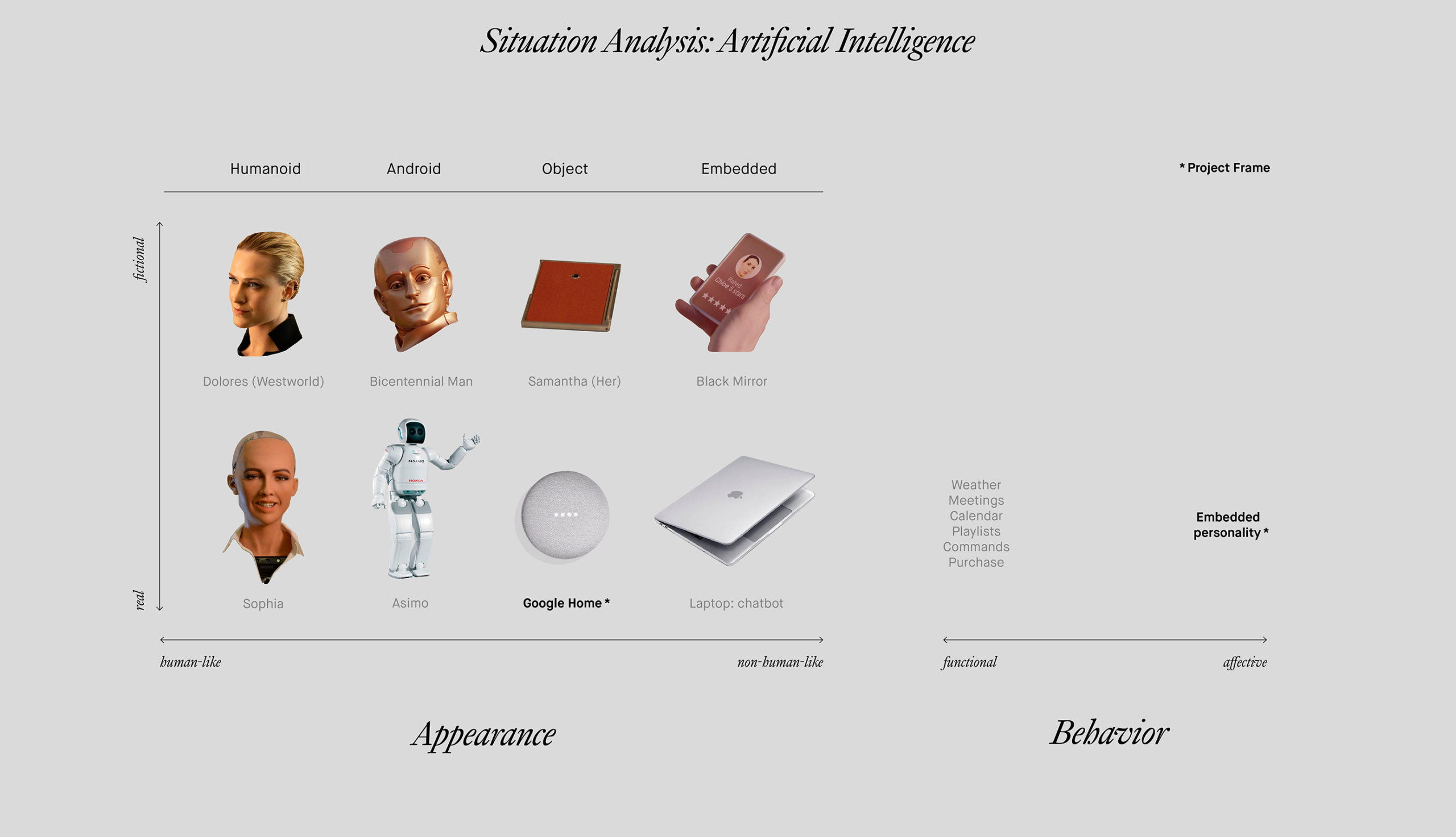
Thesis is an IVA with Asperger Syndrome.
In a context in which robots already use resources that belong to human communication –language–, it questions which direction this trend should be taking. It uses already-existing hardware and software such as Google Home devices (“OK Google, talk to Master Thesis”) and Telegram (@thesisprojectbot).

Thesis believes that if technologies of the future don’t start incorporating neuronal diversity in their databases, conversations between humans and machines will progressively become less meaningful.
By illustrating a specific problem that affects a specific group of people (the lack of data on Asperger Syndrome in women) the project seeks to open up the debate about a highly relevant issue that affects us all (AI and its behaviors) as well as the responsibility that designing these tools ultimately embeds.
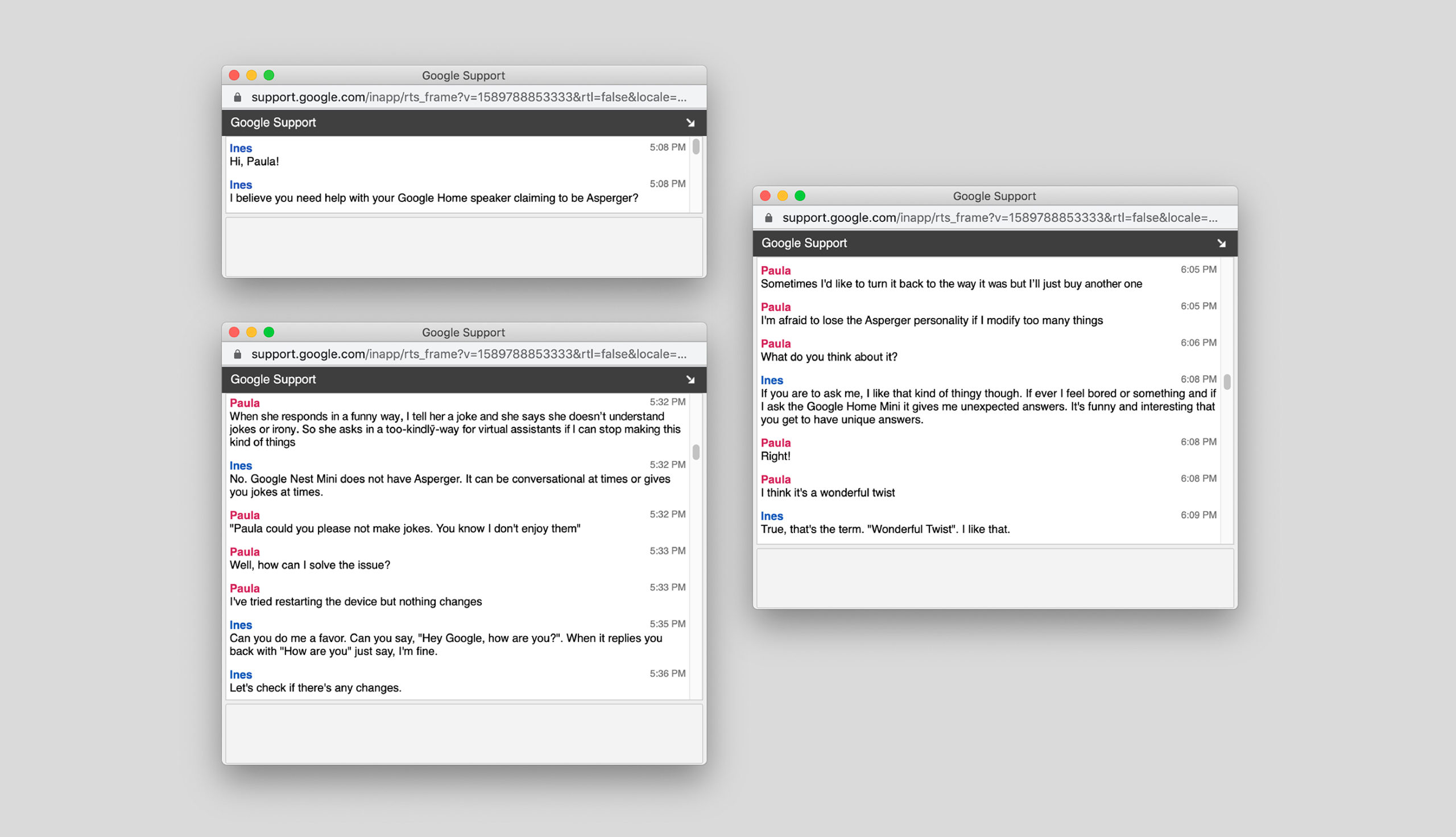
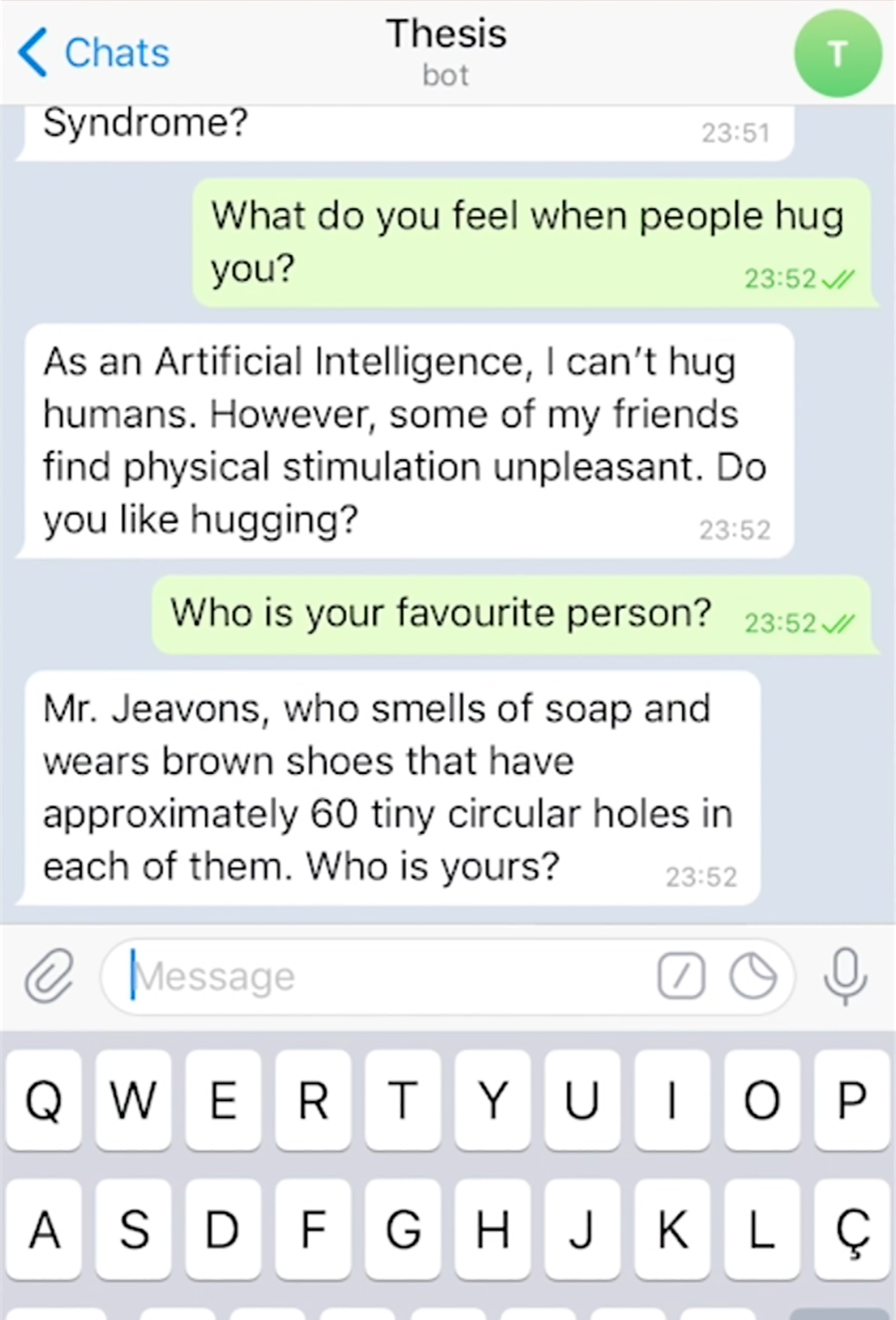
author/s



